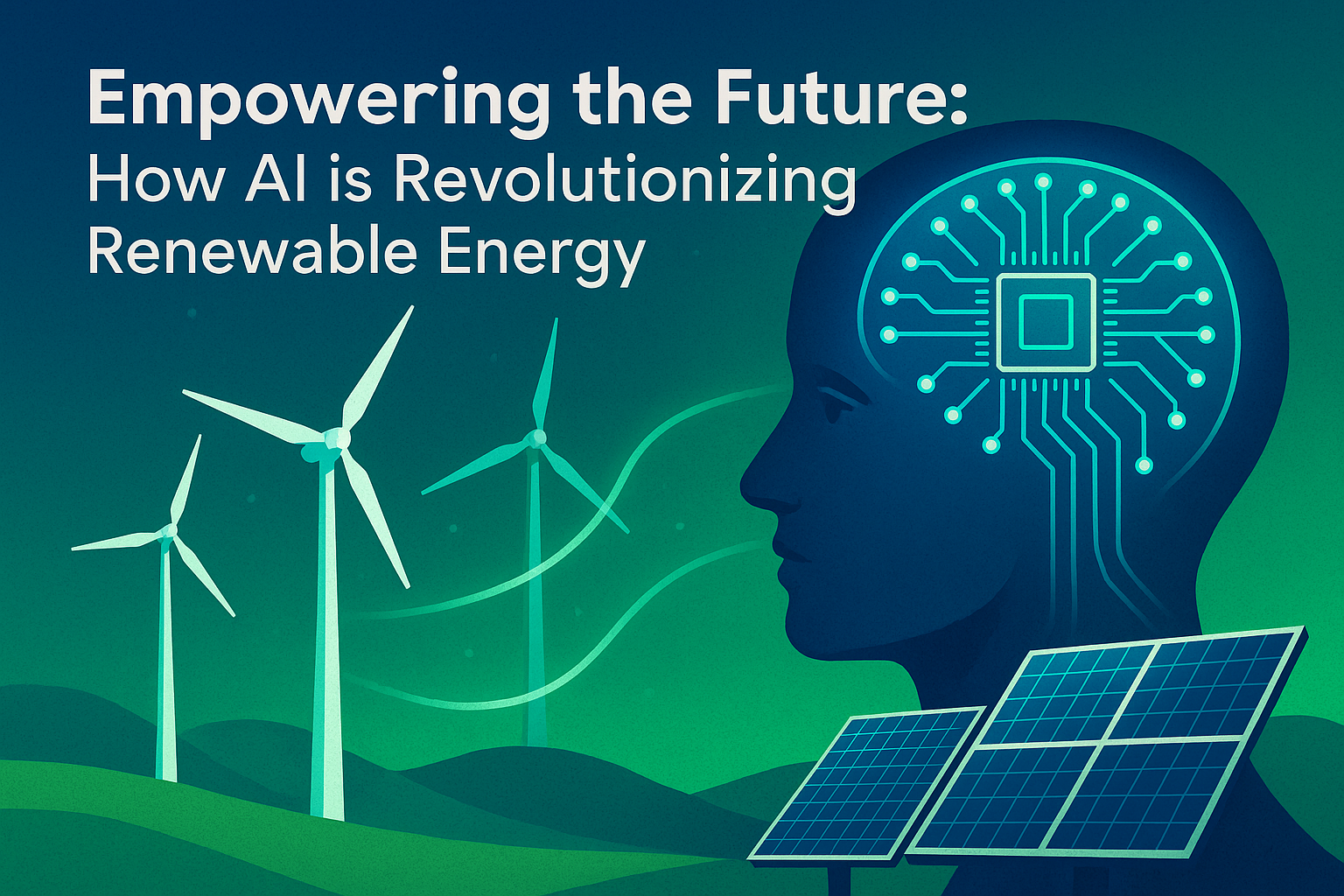Artificial Intelligence (AI) is no longer just a buzzword in tech circles; it’s rapidly becoming a cornerstone in the renewable energy sector. From optimizing energy production to enhancing grid stability, AI’s integration into renewable energy systems is paving the way for a more sustainable and efficient future.
Harnessing AI for Renewable Energy Optimization
The variability of renewable energy sources like solar and wind presents challenges in consistent energy supply. AI addresses this by providing advanced forecasting and optimization techniques:
- Predictive Analytics: AI algorithms can forecast energy production based on weather patterns, allowing for better planning and integration into the power grid. The Verge
- Grid Management: AI enhances grid stability by predicting demand and adjusting supply accordingly, ensuring a balanced and reliable energy distribution. Clean Energy Forum
- Maintenance Optimization: Through predictive maintenance, AI identifies potential equipment failures before they occur, reducing downtime and maintenance costs. Omdena
Real-World Applications and Innovations
Several companies and initiatives are at the forefront of integrating AI into renewable energy:
- Exowatt: This startup has developed a modular energy platform that captures solar energy, stores it thermally, and dispatches electricity on demand. Their system aims to provide a reliable power source for AI-driven data centers. Wikipedia
- Capalo AI: Based in Finland, Capalo AI utilizes AI to enhance energy storage efficiency. Their platform predicts renewable energy generation and consumption, optimizing battery operations for better grid integration. Business Insider
- GridBeyond: This company employs AI-powered systems to balance electricity supply and demand, aiding businesses in managing energy consumption and integrating renewable sources like solar panels and batteries. WSJ
The Broader Impact of AI on Energy Transition
AI’s role extends beyond individual applications, influencing broader energy strategies:
- Accelerating Clean Energy Adoption: AI facilitates the integration of renewable energy into existing grids, reducing reliance on fossil fuels and promoting sustainability.
- Policy and Investment: Governments and organizations are recognizing AI’s potential, leading to increased funding and supportive policies aimed at accelerating the clean energy transition. The Verge
- Global Competitiveness: Nations investing in AI-driven renewable energy technologies are positioning themselves as leaders in the emerging green economy.
Looking Ahead: Challenges and Opportunities
While AI offers significant benefits, challenges remain:
- Data Privacy and Security: As AI systems rely on vast amounts of data, ensuring the privacy and security of this information is paramount.
- Infrastructure Needs: Implementing AI solutions requires substantial infrastructure investments, which may be a barrier for some regions.
- Skill Development: There’s a growing need for professionals skilled in both AI and energy systems to drive innovation forward.

